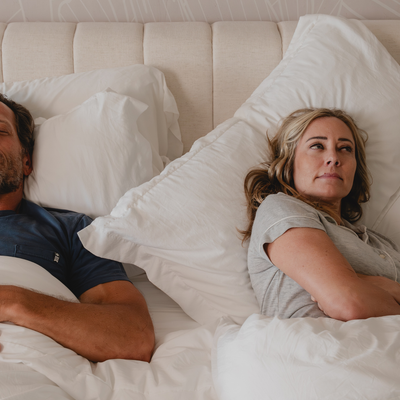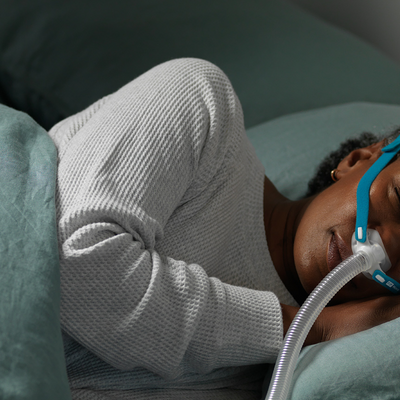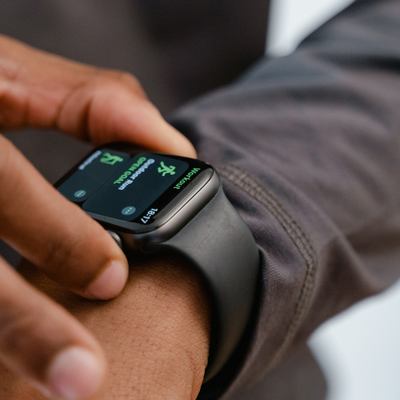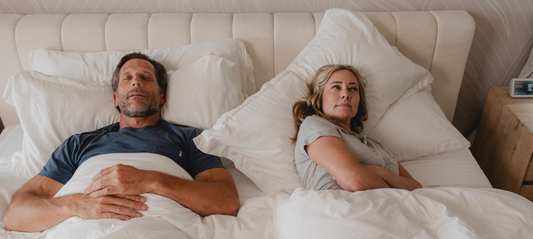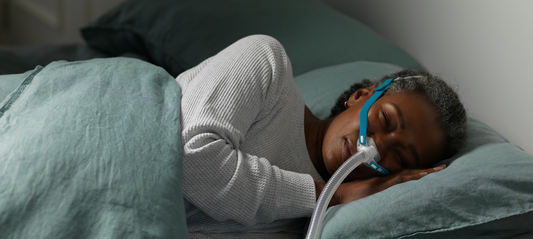December 29, 2022
Written by Brianna Graham
Social media has given us a closer look into the private lives of professional athletes and other people who prioritize physical fitness and healthy lifestyles. What many people have learned in the process is that you need a great deal of discipline to sculpt your body into its best form and compete at the highest level of sports.
Many professional athletes share what their daily life entails on social media, including intense training regimens, healthy eating, and regularly practicing their sport. But they don’t share everything.
Social media includes the most interesting highlights of most people’s lives, and professional athletes are no different. They don’t usually talk about how prioritizing sleep is a huge part of their success or failure—and whether they’re getting enough sleep or not has everything to do with their athletic performance.
Professional athletes prioritize sleep to enhance their performance
When you think of athletic performance, you likely think of practice, strength training, and healthy eating. But many professional athletes also prioritize sleep as part of their training regimen because it influences every aspect of your health and life.
NBA player Kevin Durant told HuffPost that he wakes up really early most days so he can workout multiple times. "Every day is a new chance to challenge myself and push my training to the next level, but I can only do that if I keep my energy up. Sleep is an important part of that."
Many other professional athletes prioritize sleep the same way. They know that good quality sleep can help your body heal and recover, prevent injuries, and even promote good decision-making. But what happens when athletes don’t get enough sleep?
Reduced speed
It’s no accident that you feel refreshed and energized after a night of rest. Good quality sleep primes your body for peak athletic performance. And the benefits might be cumulative.
Studies show that sleep restoration and sleep extension improves both speed and reaction times for athletes across many sports. Research shows improved sprint times among track athletes and basketball players, as well as increased stroke and kick efficiency among swimmers who experience restful sleep.
Athletes who don’t prioritize sleep miss out on these benefits while also damaging their performance. In fact, sleep deprived athletes run slower and have less enthusiasm while competing, which further damages their performance.
Compromised decision making & slower reaction time
Sleep deprivation doesn’t just slow you down physically—it also slows down your brain. And its effects are similar to alcohol intoxication in that it compromises decision making and slows your reaction time.
Derrick Rose, a point guard for the New York Knicks, understands that sleep is an essential part of being healthy. “Being healthy is a complete lifestyle for me," he explained. "It allows my brain to function at a very high degree so I can comprehend all the new things that are thrown at me. It also allows me to sleep well so that I am rested when I need to perform."
Scientists studying the effect of sleep deprivation on the brain tested how total sleep deprivation and partial sleep deprivation impacted decision making. Overall, they found that people who were sleep deprived spent less time analyzing their decisions, whether they were totally or partially sleep deprived. As a result, their decisions were more impulsive, which can be detrimental to athletic performance.
Athletes rely on split-second decisions to make plays during their games, so sleep deprivation can significantly impact performance. Without prioritizing sleep each and everyday, athletes' decision making and reaction times suffer.
Sleep deprivation impedes recovery
When you sleep, your body does a lot more than help you feel well rested. There are four stages of sleep and your body does different things during each of them: light sleep, deeper sleep, deepest sleep, and rapid eye movement sleep (REM)
REM sleep is the fourth stage of sleep. It's the stage of sleeping when you have your most vivid dreams. The other three stages, or non-REM sleep, are when your body conducts recovery activities. It helps build bones and muscles, improve your immune system, and repair damaged tissues.
Former professional football player Larry Fitzgerald prioritizes sleep for these benefits. He told HuffPost that he got at least 10 hours of sleep on game days during his career. “Your body heals and repairs itself better than anything. Being able to get some sleep really does a great cause for your recovery and helping you wake up with a renewed, fresh mental and physical outlook."
Athletes who don’t get enough sleep deprive their bodies from recovery activities that help them get stronger and recover from injuries. Most notably, sleep deprivation increases the amount of inflammatory cytokines in your body. Cytokines are proteins your body produces to aid in immune system function.
An influx of cytokines, like when you’re sleep deprived, has several consequences. It prevents your immune system from working properly, while also stopping your muscles from repairing. This makes it significantly more difficult for athletes to perform on game days.
Well-rested athletes have fewer injuries
The more sleep you get, the better you can perform cognitively and physically. Getting enough sleep doesn’t just improve athletes’ accuracy and athleticism during sporting events. It also helps them avoid injuries.
People who get less than seven hours of sleep have a higher risk for injuries like broken bones and strained muscles. And when they get too little sleep for two weeks, they’re almost twice as likely to experience injuries. For younger athletes, it’s even harder to get enough sleep—and they need more than older adults.
It’s more difficult for teens and young adults to prioritize sleep the way they should. Studies show that 14-25 year old athletes experience a higher risk of injuries when they get less than eight hours of sleep, meaning they need an hour more than older adults. And that’s especially difficult when they have evening games and practices on top of other responsibilities, like schoolwork and jobs.
Endurance decreases with sleep deprivation
Running is a foundational skill for most sports, whether you’re running up and down the court or field. When you’re sleep deprived, your running endurance suffers. In a study that measured how sleep deprivation impacted athletes, researchers found that participants couldn’t walk, bike, or run as far after a single night of inadequate sleep.
Track and field Olympic champion Usain Bolt prioritizes sleep so he can perform his best. "Sleep is extremely important to me -- I need to rest and recover in order for the training I do to be absorbed by my body," he said. Maybe that’s his secret for world record setting performances.
Prioritize sleep in your daily routine
Whether you’re a professional athlete, an amateur with sights on a professional career, or someone who plays just for fun, getting enough sleep should be a priority every day. If you have trouble falling asleep or staying asleep, you should incorporate sleep hygiene into your nighttime routine.
When sleep hygiene isn’t enough to solve your sleep issues, there might be a health condition keeping you from getting restful sleep. Sleep apnea is a common sleep disorder that leaves people feeling tired no matter how much sleep they get.
Getting a diagnosis is the only way to get treatment and solve your sleep worries. Lofta makes sleep apnea diagnosis and treatment as easy as 1, 2, 3.
- We set you up to video chat with one of our dedicated healthcare providers. If they suspect that you have sleep apnea, they'll send you a home sleep test.
- Wear your home sleep test for one night and toss it. At your followup appointment, one of our healthcare providers will share your test results with you.
- If you have sleep apnea, we help you choose an appropriate CPAP machine or another treatment option so you can get the rest you deserve.



